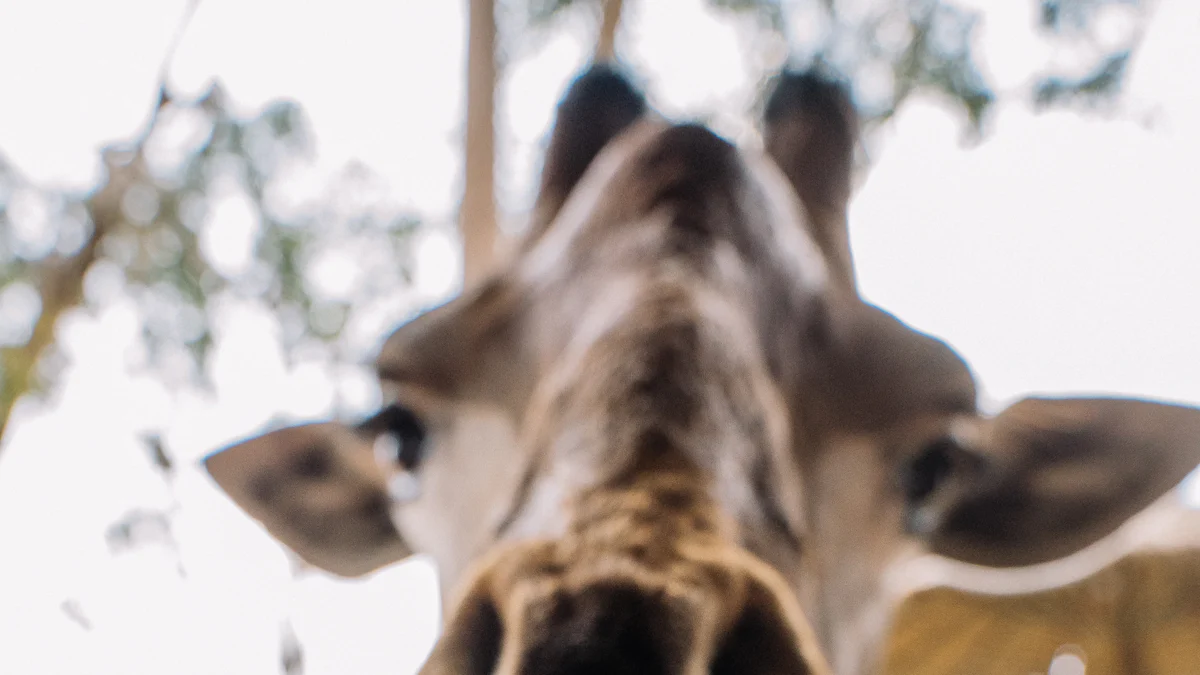
Ever wondered why dried mealworms are such a hit with reptiles? They’re packed with protein—about 50%—which helps reptiles stay energetic, build muscle, and maintain healthy cells. Plus, they’ve got around 15% fat, which supports vitamin absorption and keeps reptiles warm. Mealworms also deliver essential nutrients like calcium, phosphorus, and B vitamins. Feeding them a nutritious diet before offering them to your pet can boost their value even more. It’s like giving your reptile a superfood snack!
Key Takeaways
- Dried mealworms have about 50% protein. They are great for reptiles. Protein helps with energy, muscle growth, and staying healthy.
- These mealworms have important vitamins and minerals like calcium. Calcium and phosphorus help build strong bones and fight sickness.
- Dried mealworms are simple to store and use. They last a long time and don’t need care like live bugs. Feeding them is easy and stress-free.
Nutritional Benefits of Dried Mealworms

High Protein for Energy and Growth
Protein is a big deal for reptiles. It fuels their energy, helps them grow, and keeps their muscles strong. That’s why dried mealworms are such a great choice. They pack a punch with about 50% protein by weight, which is higher than many other common reptile food options. For example, some dried mealworms can even reach up to 60% protein! This makes them perfect for reptiles like bearded dragons and leopard geckos that thrive on high-protein diets. Plus, the protein-to-fat ratio in dried mealworms is just right for supporting your pet’s health. Whether your reptile is active or just lounging under its heat lamp, this protein boost keeps it in top shape.
Essential Vitamins and Minerals for Health
Dried mealworms aren’t just about protein—they’re loaded with essential vitamins and minerals too. They’ve got vitamin A for sharp vision and vitamin E to keep the immune system strong. Minerals like calcium and phosphorus are crucial for healthy bones and muscle function. Did you know they also contain iron, zinc, and magnesium? These nutrients play a big role in keeping your reptile’s body working smoothly. Here’s a quick breakdown:
| Vitamin/Mineral | Contribution to Reptile Health |
|---|---|
| Vitamin B12 | Supports metabolism and red blood cell production |
| Riboflavin | Helps with energy metabolism |
| Calcium | Strengthens bones and supports metabolic functions |
| Phosphorus | Aids in muscle and bone health |
Supporting Immune Function and Skin Health
Your reptile’s immune system and skin need some love too. Dried mealworms deliver essential fatty acids like omega-3 and omega-6, which are great for skin and scale health. These fatty acids also boost the immune system, helping your pet fight off illnesses. Plus, the high protein content supports tissue repair and muscle development. If you gut-load the mealworms before feeding, you can supercharge their nutritional value. It’s like giving your reptile a spa day from the inside out!
Practical Advantages of Dried Mealworms
Long Shelf Life and Easy Storage
One of my favorite things about dried mealworms is how long they last. Unlike live insects, which need constant care to stay alive, dried mealworms can sit on your shelf for months without any fuss. I’ve found this super helpful because I don’t have to worry about running out of food for my reptile. Here’s a quick comparison to show you what I mean:
| Type of Insect | Shelf Life |
|---|---|
| Dried Mealworms | Long shelf life, can be stored for extended periods |
| Live Insects | Shorter shelf life, require specific care to stay alive |
| Canned Insects | Shorter shelf life once opened, typically spoils within a week |
To keep them fresh, I always store them in a cool, dry place. Moisture can cause them to spoil, so I make sure the container is sealed tightly. It’s such a relief not having to deal with the hassle of live insects!
Reduced Risk of Pests and Contamination
When it comes to cleanliness, dried mealworms are a game-changer. During production, strict hygiene protocols are followed to reduce the risk of contamination. This means I don’t have to worry about harmful pathogens or foreign particles sneaking into my reptile’s food. I always choose reputable suppliers who prioritize quality assurance. It’s worth it for the peace of mind.
Plus, dried mealworms don’t attract pests like live insects can. No more worrying about escapees crawling around my house or attracting unwanted bugs. It’s a win-win for me and my pet.
Convenience for Feeding and Handling
Feeding time has never been easier. With dried mealworms, I can just pour them into a dish and be done. There’s no need to deal with squirming insects or worry about them escaping. For someone like me, who’s not a fan of handling live bugs, this is a huge plus.
I also love how beginner-friendly they are. If you’re new to reptile care, dried mealworms are a great option. You don’t need gloves or special tools to handle them. Just open the package and you’re good to go. It’s simple, clean, and stress-free.
Natural Compatibility with Reptile Diets

Mimicking the Natural Diet of Insectivores
I’ve always believed that feeding reptiles something close to their natural diet is key to keeping them happy and healthy. That’s where dried mealworms shine. They’re packed with about 50% protein, which is essential for muscle growth and overall health. Plus, they contain around 30% fat, giving reptiles the energy they need to stay active. The vitamins and minerals in mealworms, like calcium and phosphorus, align perfectly with what insectivorous reptiles like bearded dragons and leopard geckos need. It’s like giving them a taste of the wild, right in their enclosure.
- High protein supports muscle development.
- Fat content provides energy for daily activities.
- Nutrients like calcium and phosphorus promote strong bones.
Encouraging Instinctual Feeding Behaviors
One of the coolest things about offering mealworms is watching my reptiles engage in their natural hunting instincts. Even though dried mealworms aren’t alive, they still trigger foraging behaviors. My leopard gecko loves “hunting” them from a dish, and it’s clear this activity keeps him mentally stimulated. It’s not just fun to watch—it’s enriching for them too. Encouraging these behaviors helps reptiles stay sharp and connected to their natural instincts.
- Promotes mental stimulation through hunting.
- Replicates natural foraging behaviors.
- Keeps reptiles engaged and entertained.
Promoting a Balanced and Varied Diet
Dried mealworms are a nutritional powerhouse. They’re rich in protein, which helps with growth and tissue repair. They also provide omega-3 and omega-6 fatty acids, which are great for skin and immune health. On top of that, they’re loaded with vitamins like A, E, and B12, along with minerals like calcium and phosphorus. I like to mix them with other foods to create a balanced diet for my reptiles. It’s an easy way to ensure they get everything they need.
- High protein content supports growth and repair.
- Fatty acids improve skin and immune function.
- Vitamins and minerals maintain overall health.
Versatility of Dried Mealworms for Reptile Species
Benefits for Bearded Dragons
Bearded dragons thrive on a diet rich in protein, and dried mealworms fit the bill perfectly. I’ve noticed how their high protein content, around 50%, helps with muscle development and keeps my dragon active. They’re also packed with essential vitamins like B12 and riboflavin, which support metabolism. Minerals like calcium and phosphorus are crucial for bone health and preventing issues like metabolic bone disease.
What I love most is how mealworms encourage natural behaviors. My bearded dragon enjoys foraging for them, which keeps him engaged. Plus, they’re easy to digest, so I don’t worry about upsetting his stomach. The fatty acids in mealworms also improve his skin and scale health, giving him a vibrant, healthy appearance.
- High protein for muscle growth.
- Vitamins and minerals for bone and metabolic health.
- Easy digestion and support for natural behaviors.
Ideal for Leopard Geckos
Leopard geckos are another species that benefit greatly from dried mealworms. These little guys need a lot of protein for energy and muscle maintenance, and mealworms deliver just that. I’ve found that their 15% fat content is also a bonus. It helps with vitamin absorption and keeps my gecko warm, especially during cooler months.
Mealworms are a versatile food option for leopard geckos. They’re easy to store and serve, making feeding time stress-free. I like to mix them with other foods to ensure my gecko gets a balanced diet. It’s a simple way to keep him healthy and happy.
Suitable for Chameleons and Other Insectivores
Chameleons and other insectivorous reptiles also benefit from dried mealworms. Their high protein content supports growth and muscle development, while essential fatty acids improve skin and immune health. I’ve noticed how the vitamins and minerals in mealworms, like calcium and phosphorus, contribute to overall well-being.
What’s fascinating is how mealworms promote natural foraging behavior. My chameleon loves “hunting” them, which keeps him mentally stimulated. They’re also easy to digest, so they’re perfect for reptiles with sensitive stomachs. Here’s a quick breakdown of their nutritional composition:
| Nutrient | Composition |
|---|---|
| Protein | ~50% |
| Fat | ~30% |
| Carbohydrates | ~10% |
| Vitamins | B12, Riboflavin, A, E |
| Minerals | Calcium, Phosphorus |
Dried mealworms are a fantastic choice for insectivores, offering both nutrition and enrichment.
Dried mealworms are a game-changer for reptile owners like me. They’re easy to store, simple to serve, and packed with nutrients reptiles need to thrive. With about 50% protein and 15% fat, they’re perfect for energy, muscle growth, and maintaining body temperature. Plus, they promote natural foraging behaviors, keeping pets active and engaged. Whether you’re just starting out or have years of experience, dried mealworms are a reliable, hassle-free way to support your reptile’s health and happiness.
FAQ
What makes dried mealworms better than live insects?
Dried mealworms last longer and don’t need care like live insects. They’re easy to store, less messy, and just as nutritious. Plus, no escapees crawling around! 🪲
Can I feed dried mealworms to reptiles every day?
I wouldn’t recommend it as the only food. While they’re high in protein and fat, reptiles need variety. Mix them with other foods for a balanced diet.
How do I store dried mealworms to keep them fresh?
Keep them in a cool, dry spot. I always seal the container tightly to avoid moisture. Proper storage prevents spoilage and keeps pests away. Simple and hassle-free!


